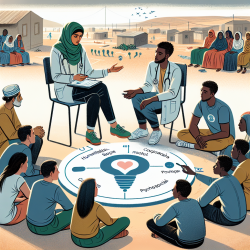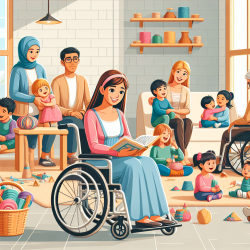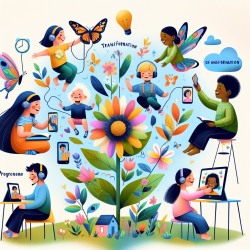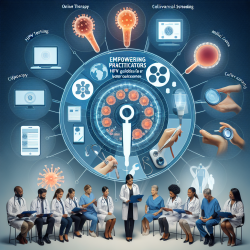The accessibility of sexual and reproductive health (SRH) services in lower-and-middle-income countries (LMICs) and humanitarian settings is often limited, especially for young people. This challenge is compounded by the increased risk of mental health issues in these environments, which can further hinder SRH outcomes. The systematic review by Desrosiers et al. (2020) offers valuable insights into SRH interventions that demonstrate effectiveness in these challenging contexts. This blog post aims to guide practitioners in improving their skills by implementing the outcomes of this research or encouraging further exploration.
Understanding Effective SRH Interventions
The systematic review analyzed 55 studies to identify effective SRH interventions for young people in LMICs and humanitarian settings. Key outcomes included improved contraception and condom use skills, enhanced HIV/STI prevention education, increased SRH knowledge, gender-based violence education, and sexual self-efficacy.
Key Components of Effective Interventions
- Education and Knowledge Building: Effective interventions often include comprehensive education on SRH topics such as contraception methods, HIV/STI prevention, gender equity, and reproductive anatomy.
- Skill Building: Programs that focus on developing skills like condom negotiation, sexual decision-making, and communication have shown positive results.
- Youth-Friendly Services: Incorporating youth-friendly services into intervention packages can improve access to essential SRH services.
Psychosocial Components
Integrating psychosocial elements into SRH interventions can enhance outcomes. Common components include assertiveness training, communication skills development, problem-solving techniques, and emotion regulation strategies. These elements help address mental health challenges that often accompany poor SRH outcomes.
Implementing Research Outcomes
Practitioners can enhance their skills by adopting evidence-based practices identified in the review. Here are some actionable steps:
- Incorporate Comprehensive Education: Ensure that educational components cover a wide range of SRH topics relevant to the target population.
- Focus on Skill Development: Design programs that build essential skills such as communication and decision-making to empower young people.
- Create Supportive Environments: Establish youth-friendly services that are accessible and welcoming to young people.
- Integrate Psychosocial Support: Address mental health challenges through psychosocial interventions that complement SRH education.
The Importance of Further Research
The review highlights the need for additional research to strengthen the evidence base for effective SRH interventions. Practitioners are encouraged to engage in research activities that explore implementation strategies, sustainability, and cultural adaptability of interventions.
Encouraging Collaboration
Collaboration between researchers, practitioners, and policymakers is crucial for developing effective interventions. Networking opportunities such as conferences and webinars can facilitate knowledge sharing and partnership building.
Conclusion
The systematic review by Desrosiers et al. (2020) provides a comprehensive analysis of effective SRH interventions for young people in challenging settings. By implementing these research outcomes, practitioners can enhance their skills and contribute to improving SRH outcomes for vulnerable populations.
To read the original research paper, please follow this link: A systematic review of sexual and reproductive health interventions for young people in humanitarian and lower-and-middle-income country settings.










